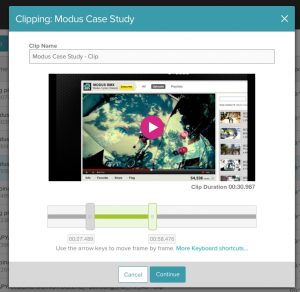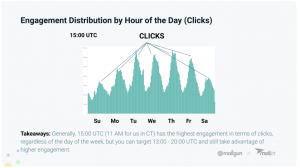— July 16, 2019
In 2017, Google Pay-Per-Click ads claimed around 78% of all search ad revenue. That just goes to show that if you’re looking into starting PPC for your SaaS company, you need to learn Google Ads inside and out. If you’re looking for an overview of everything Ads, check out: Where to Start with Google Ads. In this blog, we’re going to dive deep into optimizing your keyword list so you can get the most out of your PPC ads.
Keywords define who you’re targeting and who you aren’t targeting, and affect your budget, your strategy, and everything in between. Every great Ads campaign starts with a great keyword list. But compiling a list that will take your ad campaign to the next level isn’t as simple as just throwing together a bunch of terms that people might search for. Keep reading to find out what you need to know to create your best keyword list yet.
Take Advantage of Negative Keywords
Negative keywords are search terms that your ads will not show up for. They ensure that your ad won’t receive clicks from people outside your target audience. For example, if you’re a SaaS company that provides Microsoft Cloud services, you might consider making “+jobs” one of your negative keywords. This way anyone who’s looking for job opportunities with Microsoft or Microsoft Cloud won’t click on your ads and waste your budget.
Too often Google Ads campaigns don’t take advantage of negative keywords and end up wasting some portion of their budget on useless clicks that don’t apply to their target audience. Creating a negative keyword list can ensure that your ads are reaching the right people who have the right intention.
Raise Your Keyword Research to the Next Level
When you’re researching keywords for your Ads campaign, you need to get inside the mindset of your target audience. What motivates them? What stage of the buying funnel are they in? Does your landing page solve their problems?
If your keywords are targeting the wrong people, your ads will not perform well. You need to be sure that the keywords you target are reaching the right people with the right intention. Start with your list of important topics that you work with. For PPC for a SaaS provider, your list might include cloud computing, Microsoft Partner, Google My Business, etc. Then narrow it down. Instead of the broad “cloud computing,” try creating multiple keywords like cloud security, cloud shared drive, etc.
Always pay attention to the search term volume for each keyword. You want to be sure that the keywords you choose aren’t too competitive for your budget or, conversely, that no one is searching for them. Google will actually notify you if the former is the case by noting “Low search volume” in red text under the Status column.
Next, take advantage of Google’s “Searches Related to [keyword]” function at the bottom of each SERP. That can help you fill out your list with new terms. Mix up your keyword list with both niche and broad terms. Include keywords for both “Google Apps” and “Google Apps for Small Business.” This way you can gain the high search term volume for “Google Apps,” but you’ll stay more targeted and less competitive with “Google Apps for Small Business.”
Create Keyword-Specific Advertisements
One generic advertisement will not work for every single keyword search. Instead, the best practice for PPC for SaaS companies is to create specific advertisements per ad group. After all, you don’t want an advertisement geared towards Google Apps to show up for the search “Microsoft cloud computing for small business.”
If you have a long keyword list, rest assured that you don’t have to create an ad for every single keyword. You should at least consider grouping specific keywords together and creating an advertisement for each group.
Don’t Forget About Dynamic Keyword Insertion
Dynamic keyword insertion can give your ads a personalized touch. Dynamic keywords take the term being searched and insert it into your ad. So, by using the syntax Buy {keyword: cloud} your ad will automatically show “Buy cloud security for small business” when someone searches for cloud security for small business.
Dynamic keywords are a great way to ensure that you aren’t missing out on potential customers who might not be using the exact phrasing of your keywords.
Develop Your Keyword Competition Strategy
You should always have a keyword competition strategy. Are you willing to spend the big bucks to beat out the top competition for high search traffic keywords? Or are you willing to wait the amount of time it takes for a longtail keyword strategy to pay off?
Before developing your keyword list, decide which strategy is best for your company and budget. If you have a small budget, it’s a better idea to choose longtail niche keywords. For example, you’d be trying to rank for CRM software for engineers versus just CRM software. These longtail keywords have a lower search volume but are more targeted and are more likely to receive clicks. Because they have a lower search volume, they’re also less competitive. When you’re first starting out, consider using a longtail strategy for targeted long-term results.
Never Set It and Forget It
Your PPC for SaaS campaign is not an “out of sight out of mind” type of deal. Your PPC campaign needs to be continually optimized. You should be checking in on it at least once a week, if not every day. Each time you check in on it, optimize it by pausing advertisements that are not performing well and analyzing what makes the high-performing keywords and ads so great.
Continuous optimization sets your campaigns up for success and allows you to be flexible in what is running and for how long. One campaign might perform well for a short period due to a sudden announcement or change in the industry. But once the excitement of the announcement is over, it’s better to pause it in favor of another better-performing ad.
Ask for Help When You’re in Over Your Head
PPC campaigns for SaaS providers take time, management, and expertise. When you’re looking into running a Google Adwords campaign for your company, be prepared to set aside the time it takes to be successful. If you’re worried about competition strategy, setting the right budget, or even developing a great keyword list, it’s never a bad idea to ask for help.
Digital & Social Articles on Business 2 Community
(49)
Report Post






